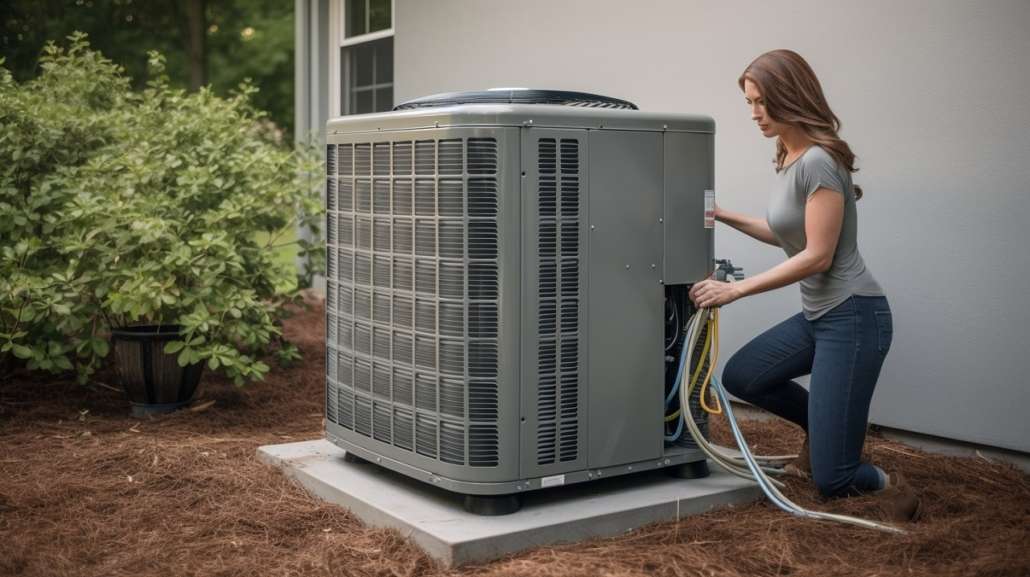Embrace energy efficiency with heat pumps
 Maine residents are increasingly choosing heat pumps to improve their home’s energy efficiency and reduce heating and cooling costs. In this article, we’ll discuss what heat pumps are, their benefits, and the costs associated with upgrading a house with a new heat pump.
Maine residents are increasingly choosing heat pumps to improve their home’s energy efficiency and reduce heating and cooling costs. In this article, we’ll discuss what heat pumps are, their benefits, and the costs associated with upgrading a house with a new heat pump.
What is a heat pump, and how does it differ from traditional systems? Heat pumps provide both heating and cooling by transferring heat between the indoors and outdoors. Unlike traditional systems that generate heat or cool air directly, heat pumps move heat, making them more energy-efficient. They extract heat from the outdoor air during winter and expel indoor heat outdoors during summer.
Benefits of installing heat pumps in Maine:
- Cost savings: Heat pumps use less energy than traditional systems, reducing electricity and energy costs.
- Energy efficiency: Heat pumps reduce your home’s carbon footprint and often qualify for federal tax credits and local utility rebates.
- Versatility: Heat pumps provide both heating and cooling, eliminating the need for separate systems.
Here are some of the advantages and disadvantages of using heat pumps over electric, wood heat, or traditional air conditioning:
Advantages:
- Lower operating costs
- Improved energy efficiency and reduced greenhouse gas emissions
- Less maintenance compared to wood-burning systems
- Enhanced indoor air quality
- Quiet operation
Disadvantages:
- Higher upfront costs
- Limited effectiveness in extreme cold temperatures
- May require additional insulation or air sealing upgrades
The cost of upgrading with a new heat pump varies depending on the size, type, and installation factors, typically ranging between $4,000 and $7,000 for a ductless mini-split system, including installation. Obtain multiple quotes from local contractors and consider system size, efficiency ratings, and warranties when making a decision.
Heat pumps offer numerous benefits, including cost savings, energy efficiency, and versatility. While there are some drawbacks, such as higher upfront costs and potential limitations in extreme cold, proper planning and installation can help homeowners maximize the advantages of heat pump systems. With the growing focus on sustainability and reducing our carbon footprint, heat pumps represent a smart, environmentally friendly choice for Maine residents.
When choosing a new heat pump for your home, consider factors such as home size, insulation levels, and local climate when choosing a heat pump. A professional contractor can help you select the appropriate system and ensure optimal performance.
Statewide programs like Efficiency Maine offer rebates for qualifying heat pump systems, while federal tax credits and local utility incentives may also be available. Research and take advantage of these programs to offset the upfront costs.
Hire a reputable contractor with experience in heat pump installations, and ask for references and reviews from past clients. A well-installed heat pump system maximizes energy savings and ensures the longevity of your investment.
In conclusion, heat pumps present a compelling option for Maine homeowners looking to improve their home’s energy efficiency and reduce heating and cooling costs. By understanding the benefits and limitations of heat pumps, selecting the right system, and taking advantage of financial incentives, you can make a smart, environmentally friendly choice for year-round home comfort.
Responsible journalism is hard work!
It is also expensive!
If you enjoy reading The Town Line and the good news we bring you each week, would you consider a donation to help us continue the work we’re doing?
The Town Line is a 501(c)(3) nonprofit private foundation, and all donations are tax deductible under the Internal Revenue Service code.
To help, please visit our online donation page or mail a check payable to The Town Line, PO Box 89, South China, ME 04358. Your contribution is appreciated!



Leave a Reply
Want to join the discussion?Feel free to contribute!